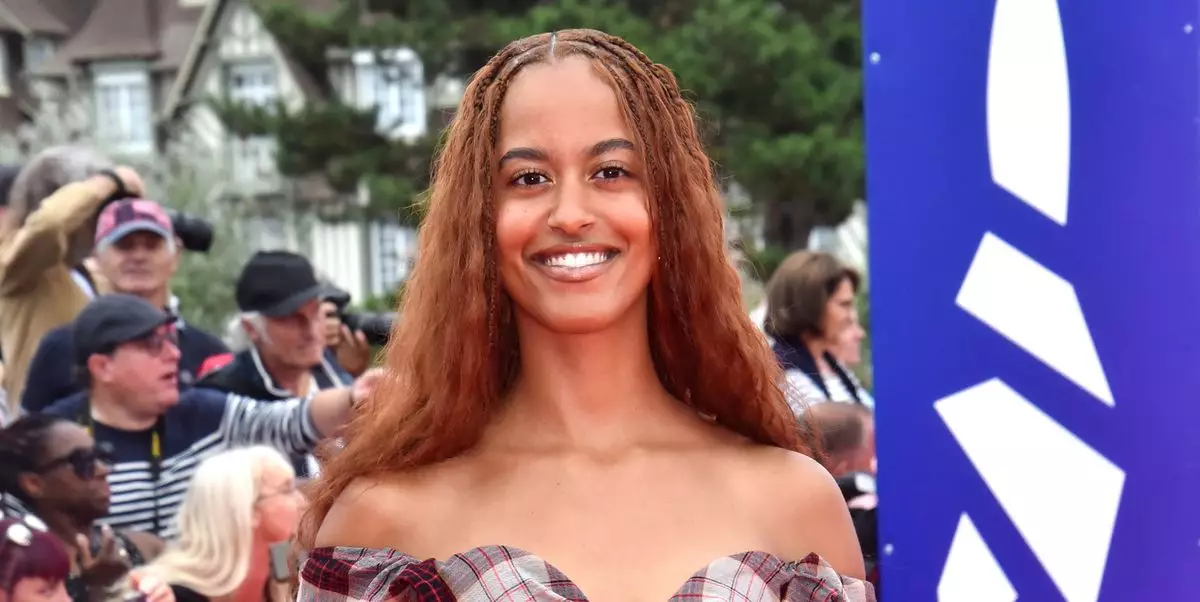In a world where family names often carry weighty legacies, Malia Obama’s choice to go by “Malia Ann” marks a significant stance towards individuality and personal identity. Recently, Michelle Obama, the former First Lady, elaborated on this pivotal decision during her appearance on the podcast “Sibling Revelry” with Kate Hudson and Oliver Hudson. Malia, now a filmmaker at 26, is navigating the complex terrain of fame and personal aspiration, a journey that resonates profoundly with many young adults striving to carve their own niche.
Michelle reflected on the common teenage “push-away” phase, a period where children often seek to define themselves apart from their parents. This phenomenon is particularly pronounced for Malia and her sister, Sasha, as they grapple not just with the usual teenage dilemmas, but also the intense scrutiny that comes from being the daughters of one of the most recognizable figures in modern history. The pressure of living up to an illustrious lineage weighs heavily on them, which is why Malia’s desire to present herself as “Malia Ann” is not merely a name change, but an affirmation of her aspiration to be recognized for her unique capabilities and contributions.
The Weight of Expectations
Michelle’s insights into the dynamics of her daughters’ lives reveal deep-seated concerns about public perception and self-worth. In her comments, she emphasizes how essential it is for Malia and Sasha to feel they have “earned what they are getting in the world.” This mantra reflects a broader societal narrative focused on meritocracy and the challenges of overcoming preconceived notions about privilege. It inspires broader conversations about how young individuals from prominent backgrounds seek validation through their achievements rather than their family ties.
Malia’s debut short film, “The Heart,” showcased at the Sundance Film Festival, served as a critical stepping stone in her filmmaking journey. By attributing her work solely to “Malia Ann,” she is assertively silencing the inevitable comparisons and assumptions concerning her lineage. It is a bold and calculated move that speaks volumes about her ambition and work ethic.
The Evolution of Parental Understandings
An intriguing aspect of Michelle’s narrative is her evolving relationship with her daughters as they mature. As they step into adulthood, both Malia and Sasha appear to be developing a newfound appreciation for their parents’ motives and decisions over the years. Michelle stated, “They understand us as full human beings now,” which highlights a crucial aspect of parenting: the transition from authority figures to relatable individuals with their own set of complexities. This transformation is not only poignant but also universal; it is a shared experience for many families as children age and gain a deeper understanding of life’s intricacies.
This evolving perspective fosters an environment of mutual respect, where both parties can engage in meaningful dialogues about identity, aspirations, and values. For Michelle, witnessing her daughters embrace their individuality while respecting their roots is undoubtedly a rewarding chapter in her parenting journey.
Malia Ann’s journey symbolizes a larger societal trend towards personal empowerment and authentic self-expression. As she continues to navigate her career as a filmmaker, her choices resonate with many who aspire to rise above societal expectations. In an age where personal branding is paramount, Malia’s courageous step toward differentiation serves as an inspiration for her peers who have also felt the weight of familial legacies.

